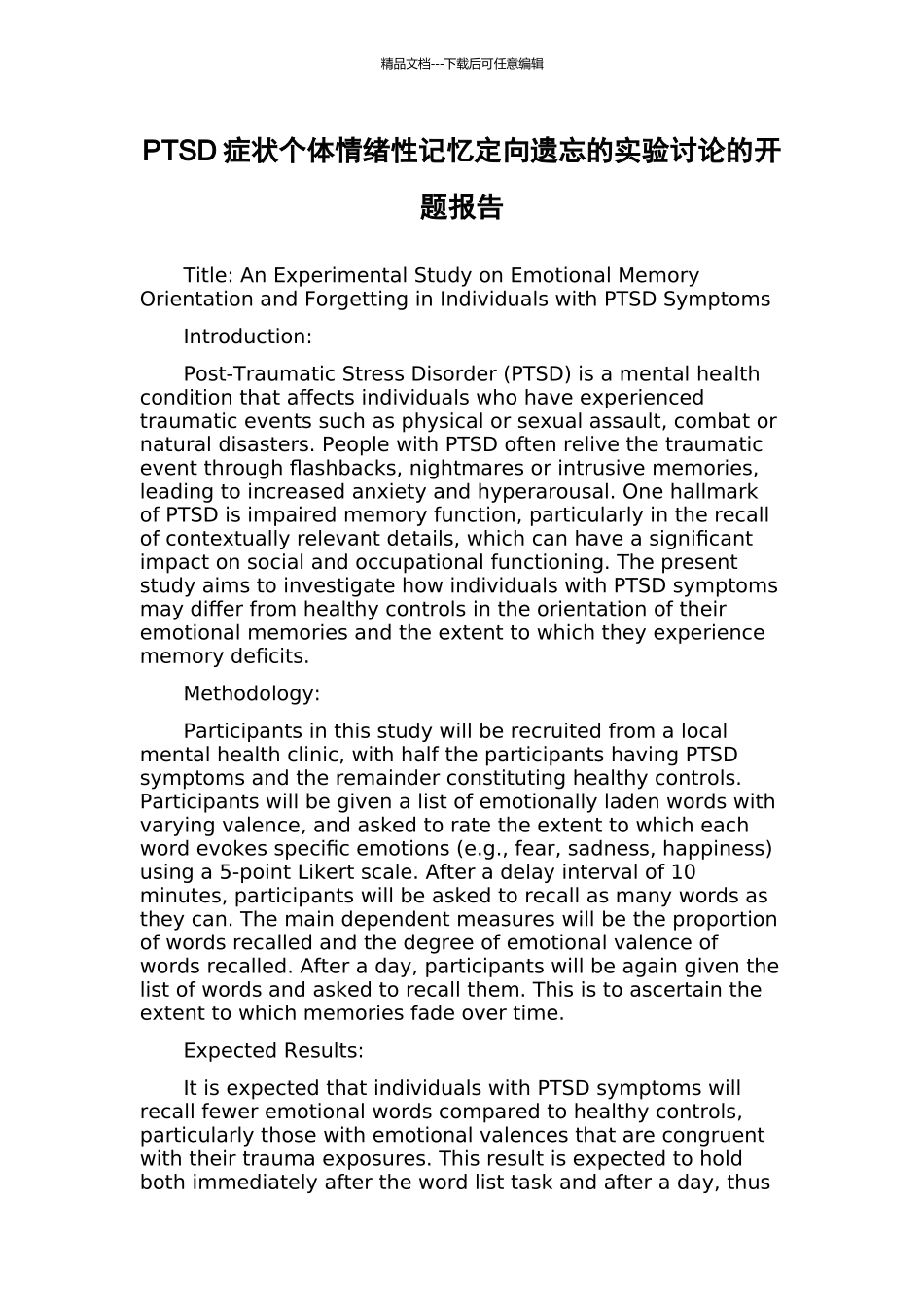精品文档---下载后可任意编辑PTSD 症状个体情绪性记忆定向遗忘的实验讨论的开题报告Title: An Experimental Study on Emotional Memory Orientation and Forgetting in Individuals with PTSD SymptomsIntroduction:Post-Traumatic Stress Disorder (PTSD) is a mental health condition that affects individuals who have experienced traumatic events such as physical or sexual assault, combat or natural disasters. People with PTSD often relive the traumatic event through flashbacks, nightmares or intrusive memories, leading to increased anxiety and hyperarousal. One hallmark of PTSD is impaired memory function, particularly in the recall of contextually relevant details, which can have a significant impact on social and occupational functioning. The present study aims to investigate how individuals with PTSD symptoms may differ from healthy controls in the orientation of their emotional memories and the extent to which they experience memory deficits.Methodology:Participants in this study will be recruited from a local mental health clinic, with half the participants having PTSD symptoms and the remainder constituting healthy controls. Participants will be given a list of emotionally laden words with varying valence, and asked to rate the extent to which each word evokes specific emotions (e.g., fear, sadness, happiness) using a 5-point Likert scale. After a delay interval of 10 minutes, participants will be asked to recall as many words as they can. The main dependent measures will be the proportion of words recalled and the degree of emotional valence of words recalled. After a day, participants will be again given the list of words and asked to recall them. This is to ascertain the extent to which memories fade over time.Expected Results:It is expected that individuals with PTSD symptoms will recall fewer emotional words compared to healthy controls, particularly those with emotional valences that are congruent with their trauma exposures. This result is expected to hold both immediately after the word list task and after a day, thus 精品文档---下载后可任意编辑indicating deficits in memory consolidation. It is hypothesized that recall deficits will be more pronounced for contextual details (i.e. where and when the words were presented) rather than for valence. Significance:Identifying memory deficits in PTSD will enable the development of better therapeutic interventions for individuals with PTSD, providing more targeted treatment strategies for PTSD. This study also has implications for the understanding of emotional memory processes and provides novel insights into how biopsychosocial factors may impact the mechanisms underlying emotional memory.

